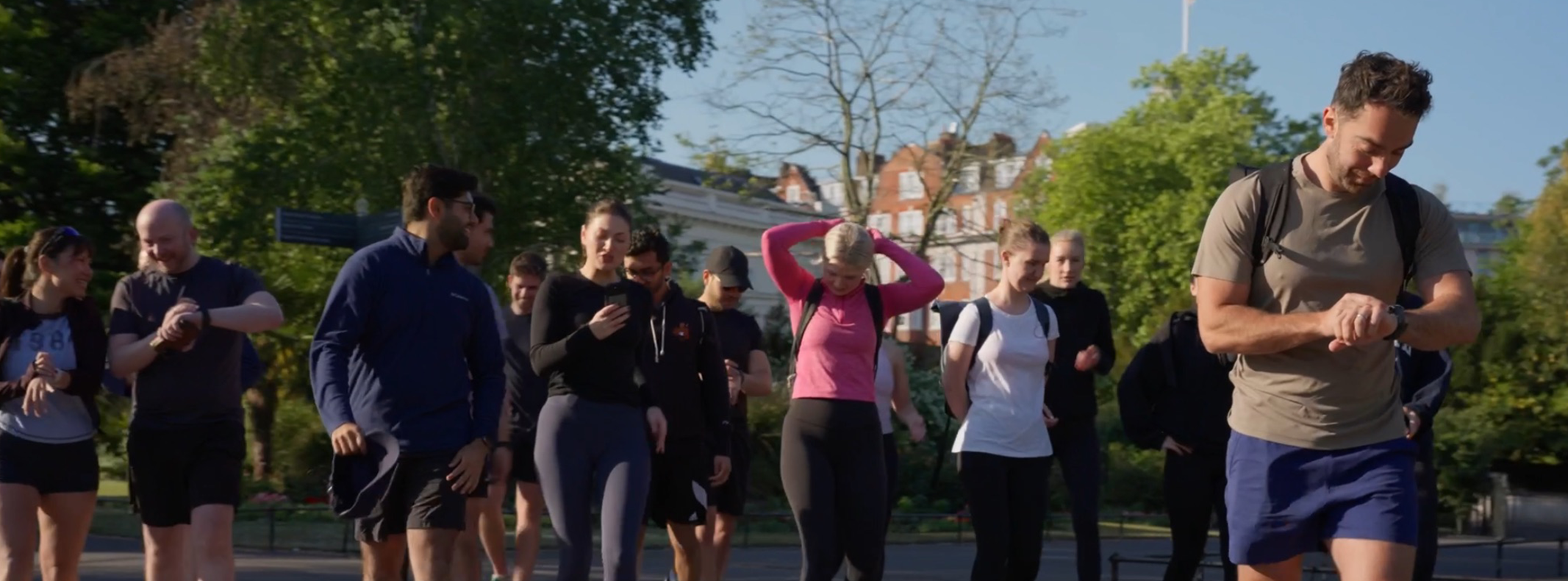Why mentorship matters
In a little under a month, we’ll be kicking off the fourth iteration of the Octopus Ventures Mentorship Program, connecting some of the talented founders from our portfolio companies with experienced operators from across European tech.
In my role on the Octopus Ventures People + Talent team I spend a lot of time talking to founders, learning more about what makes them tick, what works for them – and what doesn’t – and finding out about the challenges people with the ambition and determination to change the world face.
There are differences to their experience, of course, but there are also common refrains. Amongst the earliest-stage founders we back, those in our pre-seed portfolio, one stood out: many of them were crying out for somebody to speak to, totally separate from their board and investors. A person without any skin in the game, but with the experience of the seasoned operator, who’d been there, done it, faced down and navigated similar challenges.
At the same time, I’ve spent a lot of time thinking about the role, and makeup, of boards themselves. My colleague, Will Gibbs, on the investment team, has written about why we might not be getting them quite right before, and we’ll be publishing another blog on the topic in the near future (be sure to check back!).
A well-composed board can be a devastatingly effective asset, but the world of tech moves quickly. Bluntly, there are a host of non-executive directors (NEDs) out there who haven’t been in operational roles for years. In an ecosystem where five years can feel like fifty, I wanted to think about how we start to integrate the next generation of board members, NEDs and advisors. Those with recent experience founding, exiting or even winding-down businesses, and how we could connect them with founders at the very start of their growth journeys.
The Octopus Ventures Mentorship Program was our attempt to engage with both these pain-points – and, so far, it’s working. In this blog, I want to unpack its benefits a little further, review some of its successes, and, perhaps most importantly, to bang the drum for mentors.
Curated relationships
When a competitive start-up comes along, VCs are keen to stand out from the crowd. One of the things founders are often ‘sold’ is access to a network. While this is useful, it can be a little vague. Haphazard introductions, made without consideration for the specific requirements of the parties introduced can work out, but they can also go nowhere. More than that, a 45 minute coffee represents a real investment of time, for founder and prospective mentor alike.
When we were designing our mentorship program, this was something we wanted to avoid. It felt important to curate the mentor/mentee relationships we were trying to develop, to ensure that both parties got the maximum-possible return from participation.
That’s why we ask our founder-mentees to consider specific pain-points they’re encountering, and we profile mentors for their skills. In a recent cohort, we were able to connect an early-stage founder building in space tech with a marketing and social media guru. Although she came from another world (so to speak…) she was instrumental in helping him to see that space tech sells – really well. Her lessons and advice have helped the founder attract attention from a bunch of potential partners, and build commercial partnerships too.
We also wanted to thoughtfully consolidate our network. A network that runs into the hundreds, or thousands, isn’t always much use. How is any individual meant to keep track of that many people, be familiar with their areas of expertise, and have any real insight into who might be well-placed to help a company growing in a space at a given time?
Instead, through the mentorship program we sought to develop a yearly updated network of around 50 vouched-for individuals, with the earned insights founders need to help their businesses grow.
Ahead of the program, we review inputs from founders looking at the areas they’re struggling with, the expertise they’re missing and what they think they’d benefit from. Then, on the first evening, we sit them down with three different potential mentors, with complementary skills and experience, and ask them to rank their preferences. Our aim is to match them with their first or second choice.
In doing so, we ensure that both parties get as much as they can out of the process.
The benefits for mentees
At Octopus Ventures, we’ve always known that people are at the heart of any world-changing organisation. We established the People + Talent team in recognition of this truth, to help founders and business leaders build teams and ensure they have the tools they need to retain a competitive edge in what can be a real struggle for top talent.
We’re also committed to supporting founders themselves: we know the pressure they’re under and we emphasise the importance of self-care and finding support where they need it (we even ask them to participate in coaching as part of the term sheet).
But it can still be hard to engage with that help, particularly when it’s coming from the investment end. It would be silly to pretend that there isn’t a tension between the interests of the founder and the investors, and some suspicion is natural. The role of the mentors, then, is to deliver totally independent, unbiased advice.
The mentors we recruit have gone through it all themselves. They’re recent operators who founders can use as a venting board, a sounding board and potentially a future advisor, or NED. So far, the three cohorts have collectively returned three formal advisors to participating mentee founders. One of the mentors has just invested as an angel, proving that for founders these relationships have the potential to stretch far beyond the parameters of the program.
… and the benefits for mentors
We’ve written before about the challenge of getting into advisory, angel or NED roles. Mentoring is a great place to start. Many of the people we talk to have benefitted from mentoring themselves, and want to pay it forward, but participating also offers them a front-row seat on a pipeline of small, new businesses they may not otherwise be aware of.
Formal advisory roles, becoming a NED or even angel investing can all follow, so while their participation in our program is voluntary, it often converts to a paid position down the line.
Getting insight into what’s working and what isn’t, and getting a glimpse of the kinds of technology people are building and the problems they’re using it to solve, also gives mentors a deep insight into the current landscape. Many of the prospective mentors I speak to are founders between businesses, looking for new ideas. Through the program, and its network, they get to meet other likeminded people, ex-founders and current founders, and reflect together on the problems founders are facing in the tech start-up space today.
Where to sign up?
This year, the program is running for six weeks, from early November to Christmas. We’ll be accepting about 15 mentees from our portfolio companies, at pre-seed and Series A stage. Generally, we aim for between five and eight return mentors, with the rest incoming – and we’re recruiting now.
We hope that each mentor will participate in a couple of cohorts, but we understand that they’re volunteering a not insignificant amount of time. Hopefully, they find it repaid, both in the opportunity to share their wisdom with hungry, talented founders (without us looking over the fence!) and in subsequent working drinks and networking events.
We hold these quite regularly, they’re a chance for participating founders and mentors who may not have met one another to get together – often around a speaker.
The mentorship program is about supporting our portfolio, but it’s also about something bigger. Overcoming some of the blockers that keep a diverse range of perspectives out of the boardroom, and helping the next generation of founders, advisors and NEDs alike to meet – and change the world.
If you’re a recent founder or c-level operator, and you think you could offer emerging founders feedback on growing their teams, finding product-market fit, sales or marketing strategy or any of the other challenges early-stage start-ups face, then get in touch. You can apply to be a mentor here.













